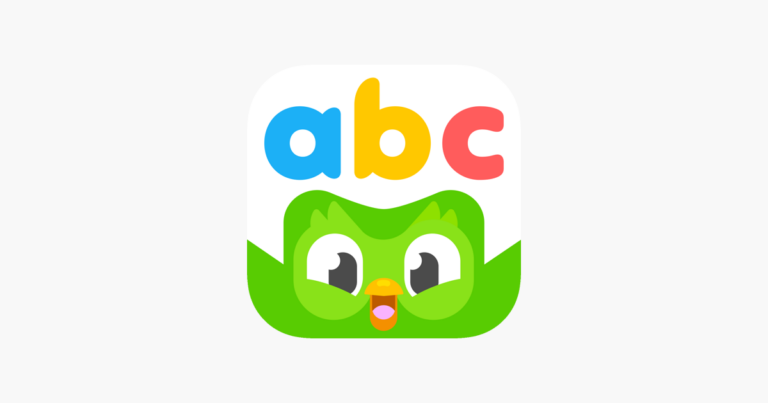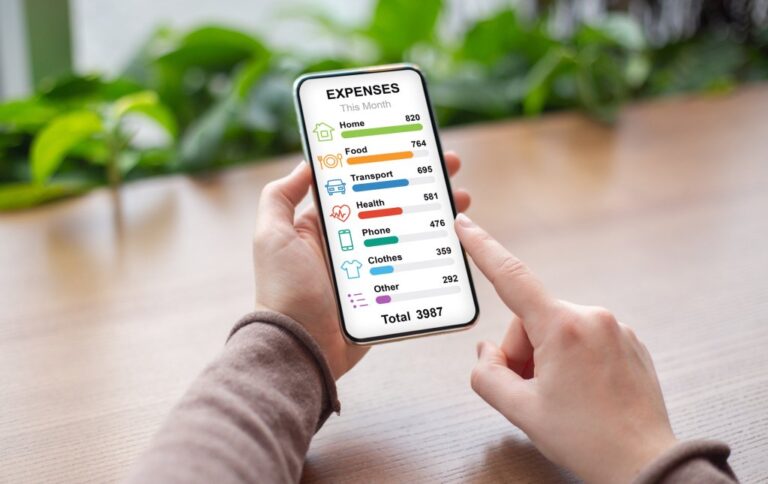In the age of digital transformation, health and wellness goals are no longer limited to the confines of traditional gyms and personal trainers. Today, one can access a world of fitness at the tap of a screen, thanks to the advent of health apps. This post will delve deep into the revolutionizing role of health apps in transforming fitness regimes, setting achievable goals, and ensuring overall wellness.
The power of technology has indeed permeated every aspect of our lives, and health and fitness are no exception. Imagine having a personal trainer, a nutritionist, a sleep therapist, and a wellness coach all packed into a pocket-sized device. This is not just a futuristic vision but today’s reality, with health apps playing a pivotal role in our health and wellness journey. 🏋️♀️
Our discussion will explore the plethora of benefits offered by health apps, from personalized workout routines to diet plans, tracking health metrics, and connecting users with a global fitness community. We will delve into how these applications are reshaping our approach towards physical health, mental well-being, and lifestyle habits.
Moreover, we’ll shed light on some successful health apps stories that have truly revolutionized fitness, inspiring millions around the globe to take their health into their own hands. We aim to provide a comprehensive understanding of how embracing health apps can catalyze the transformation of your health and wellness goals. So, brace yourself for a fitness journey that fits right in your palm. 🌍💪
Health Apps: A Game Changer in Fitness Industry
In recent years, health apps have emerged as powerful tools that are revolutionizing the fitness industry. No longer do you need a gym membership or constant access to a personal trainer to stay in shape or meet wellness goals. With just a smartphone in hand, individuals now have access to a virtual fitness hub—one that’s customized, user-friendly, and always within reach. These digital solutions are breaking down the barriers to wellness by offering flexible, affordable, and accessible ways to maintain a healthy lifestyle.
The digital health revolution has significantly changed how we approach physical activity, nutrition, sleep, and overall well-being. From tracking every step you take to designing entire workout plans and monitoring your body’s vital metrics, health apps have transformed smartphones into pocket-sized health coaches. What makes them even more appealing is their ability to blend convenience with functionality—empowering users to take control of their health journey wherever they are, whenever they want.
Personalized Workout Routines
One of the most transformative features of modern health apps is the ability to create personalized workout routines. Whether you’re a beginner trying to get off the couch or a seasoned athlete pushing for peak performance, these apps adapt to your fitness level, goals, and even physical limitations. Through a series of questions and input metrics—such as age, weight, activity level, and health goals—these apps generate tailor-made workout plans that evolve as you progress.
Many apps use AI or machine learning algorithms to analyze your data and suggest modifications, ensuring that the workout remains both challenging and achievable. Whether you’re focusing on weight loss, muscle gain, flexibility, or cardiovascular endurance, there’s a plan for you.
Another standout feature is the ability to track progress in real-time. With visual dashboards and weekly summaries, users can measure how far they’ve come and stay motivated with tangible results. Some apps even use wearables like fitness bands or smartwatches to offer deeper insights into metrics such as heart rate, steps, and calories burned.
Motivation Through Gamification and Social Features
To keep users engaged and inspired, many health apps incorporate elements of gamification. Completing a workout might earn you points, badges, or even move you up a leaderboard among friends or other users. This sense of achievement can be a huge motivator, especially for those who thrive on challenges or enjoy a little healthy competition.
Apps like Fitbit, Nike Training Club, or Apple Fitness+ offer streaks, achievements, and community challenges that transform working out into a game-like experience. These interactive elements tap into psychological rewards, encouraging users to stay consistent with their routines.
Furthermore, social integration has become a staple in many fitness apps. Users can connect with friends, join virtual workout groups, and even participate in global fitness challenges. This shared experience builds a sense of community and accountability, which is often key to sustaining long-term fitness habits. When users share progress or complete goals with others, it enhances their sense of commitment and drives motivation.
Versatility and Variety in Training Options
Another benefit that makes health apps a game changer is the sheer variety they offer. Unlike traditional training methods, which often require sticking to a set plan or instructor, health apps offer access to hundreds—sometimes thousands—of workouts spanning multiple categories: HIIT, strength training, yoga, pilates, dance cardio, functional training, running, and even mindfulness-based movement.
Users can try different workouts daily, switch instructors, or choose a new focus area each week. This diversity not only prevents boredom but also supports a more balanced fitness routine that caters to all aspects of health—from strength and endurance to flexibility and mental wellness.
Transforming Nutrition Management
Just as health apps have revolutionized exercise, they have also made significant strides in nutrition management. Instead of guessing what foods might be healthy, users can now track their dietary intake with ease and accuracy.
Comprehensive Food Tracking
Health apps often come with extensive food databases, enabling users to log their meals and snacks quickly and accurately. This allows individuals to see their calorie intake, as well as their breakdown of macronutrients – proteins, carbohydrates, and fats. This level of detail helps users make more informed dietary decisions, leading to healthier eating habits.
Monitoring Sleep and Stress Levels
Sleep and stress management are crucial aspects of overall health and wellness. Health apps have incorporated features that monitor sleep patterns and stress levels, giving users valuable insights into their mental and emotional health.

Sleep Trackers
Health apps with sleep trackers monitor the user’s sleep cycles, providing a detailed analysis of sleep quality. These apps often offer personalized tips and recommendations to improve sleep hygiene, leading to more restful and restorative sleep.
Stress Management Techniques
In an increasingly hectic world, managing stress is paramount for maintaining health and wellness. Health apps offer a variety of stress management techniques, including guided meditations, breathing exercises, and mindfulness practices. These tools help users cope with stress, reducing its negative impact on health.
The Power of Community
Lastly, health apps tap into the power of community to keep users motivated and engaged.
Social Features
Many health apps include social features, allowing users to share their progress, join workout challenges, and connect with like-minded individuals. This sense of community can provide the necessary motivation to keep pushing towards health and wellness goals.
Professional Support
Some health apps offer access to professionals like dietitians, personal trainers, and mental health experts. This not only provides users with reliable information but also offers a support system to guide them on their fitness journey.
The Future of Health Apps
As the world continues to embrace digital solutions for everyday needs, the future of health apps is becoming increasingly exciting and transformative. What started as simple tools for step tracking or calorie counting has evolved into comprehensive wellness ecosystems. These platforms now offer features that rival—and in some cases surpass—traditional health monitoring methods. With technology advancing rapidly, we are poised to see a new generation of health apps that are smarter, more intuitive, and significantly more impactful in promoting well-being.
Integration with Wearable Tech: The Always-On Wellness Companion
One of the most significant developments shaping the future of health apps is their integration with wearable technology. Smartwatches, fitness bands, and even smart rings are becoming essential components of personal health management. These devices continuously collect biometric data, including heart rate variability, blood oxygen levels, respiratory rate, sleep cycles, and physical activity. By syncing seamlessly with mobile health apps, wearables provide users with real-time feedback and long-term analytics.
This constant stream of data allows for a more holistic view of health, enabling apps to offer proactive rather than reactive advice. Instead of merely reporting past activity, these tools are beginning to forecast trends—helping users adjust habits before problems arise. Imagine receiving a gentle nudge from your app when your stress levels have remained elevated for several days or when your sleep quality is consistently poor. This kind of feedback could prompt changes in behavior that prevent health issues before they manifest.
Furthermore, the integration of wearable tech enhances accessibility and convenience. Users no longer need to manually input data; it’s automatically tracked, stored, and interpreted. Whether it’s reminding someone to hydrate, suggesting a walk after prolonged inactivity, or detecting irregularities in heart rhythms, the partnership between wearables and health apps is elevating preventative healthcare to new heights.
Artificial Intelligence: Hyper-Personalized Health
Artificial Intelligence (AI) is another groundbreaking element reshaping the future of health apps. As apps collect more user data, AI algorithms can analyze patterns, draw insights, and deliver hyper-personalized recommendations. This means users receive guidance that is tailored not only to their fitness level or diet preferences, but also to their genetic disposition, lifestyle habits, and even emotional states.
For instance, AI can help users adjust their fitness plans based on real-time performance data, recommending rest days, new workout styles, or nutritional changes when needed. Some apps are already using AI to guide breathing exercises in response to detected stress or anxiety, adjusting the pace and duration based on biometric feedback from wearables.
Moreover, AI-powered health apps can serve as early detection systems. By monitoring subtle changes in a person’s metrics over time, these tools may flag anomalies that warrant medical attention—potentially identifying conditions such as sleep apnea, hypertension, or irregular heart activity long before symptoms become noticeable.
The future may even see these systems integrating with electronic health records (EHRs) and working alongside healthcare providers to offer truly collaborative, tech-driven patient care. Such integration could mean faster diagnoses, better treatment plans, and improved long-term health outcomes.
Data Privacy and Security: A New Frontier of Responsibility
As health apps become more intelligent and deeply integrated into users’ lives, the handling of sensitive data becomes a critical concern. In the future, ensuring user privacy and security will be paramount. Developers and companies will be expected to adopt more robust encryption methods and transparent data policies. Regulations such as HIPAA in the U.S. or GDPR in Europe are just the beginning—future health apps will need to demonstrate a firm commitment to safeguarding user information while providing value.
Blockchain technology and decentralized data storage are also gaining traction as potential solutions for secure and transparent data sharing. These innovations may empower users to control who accesses their health data and how it’s used, thereby increasing trust and engagement with the apps themselves.
The Rise of Holistic Health Platforms
Beyond tracking and advising, future health apps will likely evolve into holistic wellness platforms. These super apps could unify physical fitness, nutrition, sleep, stress management, mental health, and even social well-being under a single digital roof. With integration from healthcare providers, therapists, fitness coaches, and nutritionists, users could have all their health resources in one place, accessible with just a tap.
We can also expect more real-time interaction through voice assistants and augmented reality interfaces. Imagine a guided yoga session where an AI-powered coach provides posture corrections based on your device’s camera input, or a meditation app that adapts its tone and rhythm based on your real-time heart rate.
Final Thoughts
The horizon for health apps is expanding rapidly, fueled by technological innovation and an increasing societal focus on personal well-being. These apps are evolving from supplementary lifestyle tools into essential pillars of daily health management. With AI, wearable integration, and advanced personalization leading the way, health apps will not only support fitness and nutrition goals but also enable early diagnosis, preventative care, and improved quality of life.
As we look ahead, one thing is clear: the future of health is digital, and it’s deeply personal. Embracing these advancements today means investing in a healthier, smarter tomorrow.
Conclusion
The revolutionary power of health and fitness apps cannot be understated. These digital tools are transforming the health and wellness landscape, offering unprecedented accessibility, customization, and motivation to achieve individual fitness goals. With their interactive features, comprehensive tracking, and personalized workout plans, they empower users to take control of their health journey, eliminating barriers of time, location, and resources. Health apps also bring science and technology together to provide data-driven insights into our health patterns, fostering a culture of preventative care and conscious living. Their social aspects further enhance their appeal, creating communities of like-minded individuals who provide mutual support and inspiration. It’s clear that the impact of these apps extends far beyond just physical fitness; they’re reshaping our approach to overall wellness and paving the way for a healthier, more active society. Therefore, embracing these health apps is not just a trend, it’s a lifestyle shift that holds immense potential for our health and wellness goals. As we move forward in this digital age, we can anticipate that health apps will continue to evolve, revolutionizing fitness as we know it.



